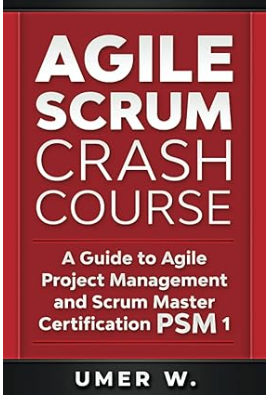The role of a Scrum Master is pivotal within Agile frameworks, particularly in Scrum methodology. Think of the Scrum Master as a facilitator, a coach, and a servant-leader all rolled into one.
Facilitator of the Scrum Process
The Scrum Master is responsible for ensuring that the Scrum process is understood and enacted. They facilitate the various Scrum ceremonies or meetings, such as Sprint Planning, Daily Stand-ups, Sprint Reviews, and Retrospectives. During these sessions, the Scrum Master helps the team follow the process and removes any impediments that might hinder progress.
Coach and Mentor
Beyond just managing the process, the Scrum Master acts as a coach and mentor to the team. They guide the team on Agile practices and principles, ensuring that everyone comprehends and adheres to the values of Scrum. They empower the team to self-organize and make decisions collectively while guiding them towards continuous improvement.
Servant Leader
One of the crucial aspects of a Scrum Master’s role is being a servant-leader. This means they serve the needs of the team, removing obstacles, and shielding them from external distractions, allowing the team to focus on their tasks. Simultaneously, they lead by example, fostering an environment of collaboration, trust, and transparency.
Problem Solver and Mediator
The Scrum Master also acts as a problem solver, addressing conflicts within the team or impediments that obstruct progress. They ensure that the team can work effectively by facilitating discussions, mediating conflicts, and promoting a positive team dynamic.
Continuous Improvement Advocate
Moreover, the Scrum Master is a staunch advocate for continuous improvement. They encourage the team to reflect on their processes and performance during retrospectives, identifying areas for enhancement and guiding them in implementing changes to become more effective and efficient.
Key Ceremonies Led by Scrum Masters
Scrum Masters lead various ceremonies critical to the Scrum process, including Sprint Planning, Daily Stand-ups, Sprint Reviews, and Retrospectives. In these ceremonies, they facilitate discussions, ensure adherence to Agile principles, and remove any impediments that may arise.
Competencies of a Successful Scrum Master
To excel in their role, a Scrum Master needs a diverse set of competencies. This includes strong communication and facilitation skills, the ability to coach and mentor teams effectively, problem-solving and conflict resolution skills, and a deep understanding of Agile principles and frameworks. Additionally, empathy, adaptability, and servant leadership qualities are essential for fostering a collaborative and high-performing team environment.
In essence, the Scrum Master is the guardian of the Scrum framework, supporting the team in adopting Agile principles, navigating challenges, and optimizing their performance to deliver high-quality products or services within the iterative and time-bound framework of Scrum.
Their role is not that of a traditional project manager; instead, they facilitate and enable the team to be self-organizing, motivated, and highly productive within the Agile framework.

Agile Scrum Crash Course
Agile Scrum Crash Course is a quick and complete guide on all you need to know to learn the essentials of Agile Project Management and Scrum. It will also help you prepare for the Professional Scrum Master Certification, PSM 1 and pass on your first attempt.
Read more from our blog:

Mastering Agile
Mastering Agile methodologies is paramount for project managers seeking efficient, adaptable, and customer-centric approaches to project execution.

Sprint Planning
Sprint planning is a cornerstone in Agile methodologies, serving as the roadmap for focused efforts within a specified timeframe, known as a Sprint.

Development Teams
In software development, adopting agile methodologies like Scrum has become a norm for achieving flexibility, efficiency, and faster delivery.